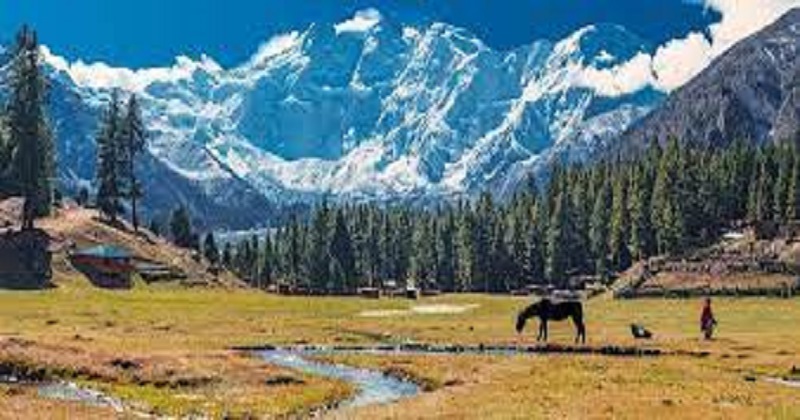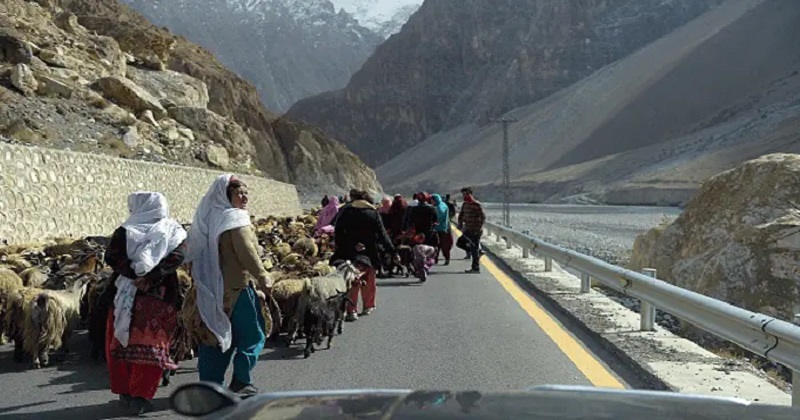
Haji Shamsher Ali, 86, has not been able to cross the Shyok river in 50 years, despite the distance being just 30 minutes along its banks. Ali’s younger brother, Haji Abdul Qadir, lives in the Gilgit-Baltistan area of Pakistan and looks up at the same canopy of stars, listens to the murmur of the river in the distance, and thinks of his family, separated by destiny.
Residents of Turtuk discovered their nationalities had changed as India awoke to news of a victory that birthed a new nation on December 16, 1971. There was an overnight shift in the Line of Control (LoC) along the India-Pakistan border and with it the fates of 350 families living there. Turtuk and three other villages in Ladakh’s Nubra Valley, which were occupied by Pakistan since 1947, were now part of India. Balti residents living in the village were split between two hostile neighbours.
Ali’s son Ghulam Hussain Gulli, a travel agent, says that in those days, most young men went to cities like Skardu or Lahore to study or work. When the war ended, only the very young and very old remained in the village. As a result, wives were separated from husbands, fathers from sons, and brothers from brothers when the war ended.

During the war, Ali’s brother Qadir worked in Skardu. ‘Initially we did not even know if he was alive. His wife, my aunt, was here with us. We spent many months waiting for word from him,’ Gulli recalls. Qadir’s name was announced in a Skardu Radio program. ‘It was such a relief that we hugged the radio and cried. Yeh border hamare dillon par ek lakeer ban kar rah gayee (The border has divided us from our loved ones),’ Gulli says. It took a long time for letters and visits to arrive. Visas on both sides proved to be an insurmountable challenge. Occasionally, letters would arrive with news of births or deaths, sometimes months or years later.
Fazil Abbas, 49, was the luckier one. During 2013, Mohammed Bashir, who was studying in Pakistan at the time, was able to get a visa and visit his family. ‘My father passed away pining for him. But my mother was able to meet her eldest son and I met my brother after 42 years,’ Abbas says. Abbas, a cop posted in Drass, went to Delhi to meet him. ‘We had a big celebration and decorated the whole village for Bashir. He stayed for two months and when he left, all of us were in tears. It was very hard to say goodbye,’ Abbas says.
A visa approval for Bashir to return has not been granted. There have been no visits from either side since 2016, according to residents. 9,000 Balti families in 38 villages have been forced to adjust to the ebbs and tides of regional geopolitics. According to Sadiq Hardassi, scholar of Balti culture and community, and member of the Divided Families Coordination Committee, the community has been forgotten in the animosity between the two countries. As a result of a deteriorating relationship between India and Pakistan, people like Gulli are affected. The majority have adjusted to this reality. The retired power department official Sanaullah’s brother – stranded in Pakistan – waited 12 years to meet his wife, who was left in Turtuk. In recent years, technology has helped bridge the gap.
Read more: Taliban destroyed ancient Buddha statues, now charging tourists $5 to gaze at ’empty holes’
The tiny community in Pakistan’s Gilgit-Baltistan and in India’s Ladakh, Uttarakhand, and J&K is also bonded by music and poetry. The Balti – predominantly Shia Muslim – have a unique language, culture, and cuisine. Years of separation have inspired music that often speaks of love and longing. Hardassi says that some Pakistani musicians like Manzoor Baltistani are very popular there, and our artists like Sherine Fatima Balti are very popular there. Turtuk, long cut off from the rest of the world, opened to tourists in 2010 and an all-weather road links it to Diskit, 100 km away. With over 100 tourists every day during summer, the village is now on the tourist map.
Tourists from other countries used to live with Balti families to experience the cuisine and culture before the pandemic. In the last few years, residents who grew apricot, walnut, barley, and buckwheat have also started homestays and travel agencies. There is a growing realization that the culture and language should be preserved. In addition to running a Facebook page, Abbas posts music videos and everyday scenes from Turtuk on his Facebook page, Turtuk at a Glance. The village has a museum displaying clothing, utensils, and tools from Balti heritage.
Turtuk remains plagued by infrastructure issues. Phone and internet coverage, however, remains patchy despite well-maintained roads. Winter can cause communication lines to go down for several days at a time. This summer, the village enjoyed 24-hour power for the first time since 1971. Next year, tap water will be available to every home and a mobile tower will be installed. As the snow melts heralding spring, Turtuk hopes that their dreams for a better life will also come true.

Post Your Comments